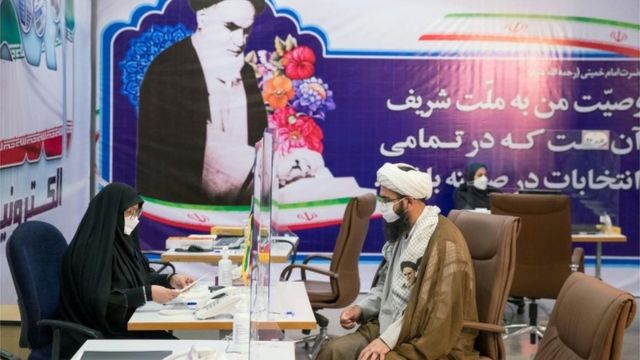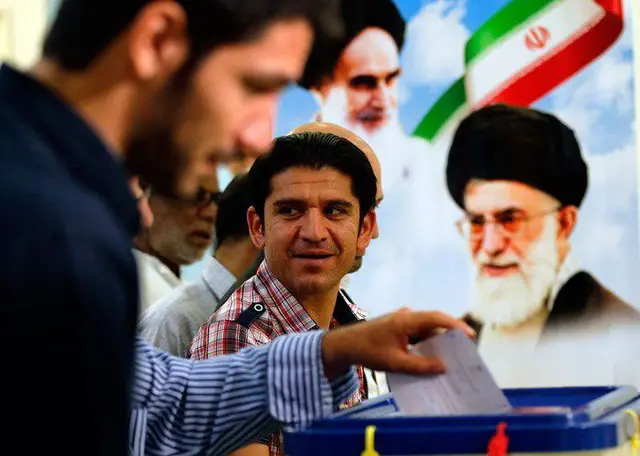Editor's Note:
The writer, Mr. I. Hussain Janjua is a senior media professional and analyst having experience of research & broadcast journalism in different organisations. He is a non-resident fellow of Chengdu Institute of World Affairs (CIWA). (Email: [email protected]; twitter: @ihussainjanjua)
Iran’s presidential election is due to take place on June 18 while seven candidates are in the run to replace President Hassan Rouhani. The candidates are: Saeed Jalili – a former nuclear negotiator; Mohsen Rezaei – a former Revolutionary Guard commander; Ali Reza Zakani – a former lawmaker; Amir Hossein Ghazizadeh – a current lawmaker; Mohsen Mehralizadeh – a former provincial governor; Abdolnasser Hemmati – the current head of Iran’s Central Bank and Ebrahim Raisi – Iran’s top judge.
Though all democracies limit choices available to voters, but in Iran’s case the choice is more limited as the Guardian Council, a 12-person body made up of jurists and clerics who answer to the country’s Supreme Leader, Ayatollah Ali Khamenei, decided that only the seven men are qualified to run for president.
Brigadier General Hossein Dehghan, a former IRGC aerospace force commander who served as minister of defense in Rouhani’s first cabinet; Brigadier General Saeed Mohammad, a former commander of the IRGC’s construction and engineering conglomerate Khatam-al Anbiya Construction Headquarters, and Ali Motahari, a former deputy speaker of the Majlis and son of Morteza Motahari, one of the Islamic Republic’s foremost ideologues and intellectual leaders are also hopeful of reaching the top slot.
However, Ebrahim Raisi, who was also the runner-up in the 2017 election, is the best-known contender, and according to some state polls he is the favorite candidate among the hardliners.
But despite international challenges domestic issues are also very critical. According to different estimates most Iranians think Iran’s economic situation is bad and getting worse and they place most of the blame for that on economic mismanagement and corruption, rather than US sanctions or the corona virus pandemic. A clear majority (64 percent) Iranians want the next president to be someone who is opposed to the incumbent President and his policies.

Most Iranians (60 percent) want a leader who will stand up for Iran’s rights and refuse to compromise, while 35 percent want one who will focus on negotiating and finding common ground with other countries. In fact Iranians express a clear preference for more conservative figures. When asked to name who they would like to be the next president of Iran, 28.2 percent of people cited the hardliner chief justice Ebrahim Raisi.
Since the last presidential election in 2017, a series of events has drastically changed the Iranian political landscape. Crackdowns on anti-government protests; arrests of political and social activists and a severe economic crisis as a result of US sanctions are worth mentioning.
The repercussions among ordinary Iranians are having a significant impact on the upcoming election as with expected low turnout to prove the legitimacy of the political system would be further questioned as it has been seriously challenged by the events of the past four years.
The economy has always played a key role in the Iranian elections and it is high on the agenda of every candidate. Due to the precarious economic situation, Iran is now in one of its most critical phases since the 1979 revolution.
The impact of sanctions, exacerbated by the corona virus pandemic, has caused one of the worst economic crises in the country's history, with the inflation rate reaching 50 percent. The political climate is volatile and things can go one way or another, right up to the Election Day.
But there is optimism as well … the victory of Joe Biden in last year’s US presidential election has raised the prospect of reviving diplomatic negotiations with Iran, after tensions between the two countries soared under his predecessor Donald Trump. Although most hardliners within Iran's political establishment regard talks with the US as pointless, reformists and centrists are in favor the middle course.
They also support joining international anti-money laundering organizations such as the Financial Action Task Force (FATF), reconciliation with regional rival Saudi Arabia. Such measures would significantly reduce friction in the region and also create an opportunity to revive Iran's ailing economy.
However, as the overall policies of the Islamic Republic, including its foreign policy, are determined by the Supreme Leader, Ayatollah Ali Khamenei, those who intend to boycott the upcoming election believe whoever is the next president has little power to change the status quo without his consent.
Therefore, Iranian presidential election is very crucial for not only Iran herself but the region as well having great strategic significance. In case of a moderate candidate taking over the reign of presidency it is hoped tension in the region would subside in due course and Iran’s relations with the West and the US would improve … a positive disposition for the country’s economy and the region.
(ASIA PACIFIC DAILY)
 简体中文
简体中文

